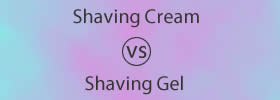Difference between Paradox and Irony
Key Difference: A paradox is type of statement that contains contradicting statements that are both true and false at the same time. While, the statements seem to be false at first glance, when tried to be proven, they will be proven true. Irony is a type of rhetorical device, literary technique, or event in which what really happens is completely different, often exactly opposite of what is expected. Irony can be divided into three types: verbal, dramatic, and situational.
 English can be a difficult language at times. This is especially true when one is trying to describe difficult or confusing concepts as a paradox and/or irony? What does these two terms mean? Both refer to statements that are talk about contradicting things. However, as is always the case with the English language and the arbitrary concepts, things are never simple.
English can be a difficult language at times. This is especially true when one is trying to describe difficult or confusing concepts as a paradox and/or irony? What does these two terms mean? Both refer to statements that are talk about contradicting things. However, as is always the case with the English language and the arbitrary concepts, things are never simple.
A paradox is type of statement that contains contradicting statements that are both true and false at the same time. While, the statements seem to be false at first glance, when tried to be proven, they will be proven true.
A simple and classic example of a paradox is ‘jumbo shrimp.’ The two words, ‘jumbo’ and ‘shrimp’ are naturally opposites, as jumbo means big whereas shrimp means small. However, the phrase is a paradox because it is technically possible for a shrimp to be jumbo in size when compared to other shrimp. Other examples of paradox include ‘spend money to save money’ or ‘cruel to be kind’.
Another type of paradox is the philosophical kind. This is where a statement is both true and false at the same time. One example of this is the question, ‘Is the answer to this question no?’ If one answers no, then are they saying that the answer is not no, yet proving the statement true, as they did answer no to the question. Similarly, if they say yes, then are they saying that yes the answer to the question is no. Hence, there is no way to actually prove or disprove the statement. It is both true and false at the same time.
Irony, on the other hand, is a bit more complicated. The reason behind that is because there is no accepted definition of irony. There is a textbook definition, however over time it has been interpreted in many forms, which is why even though one will accept something as irony, another person will reject it.
Irony is a type of rhetorical device, literary technique, or event in which what really happens is completely different, often exactly opposite of what is expected. Irony can be divided into three types: verbal, dramatic, and situational.
Verbal irony is when one says something that is exactly the opposite of what they mean. Example: This bed is as soft as concrete. The statement is ironic because even though they are saying that the bed is soft, the reality is the exactly opposite. In fact, the bed is as hard as concrete. Sarcasm is often considered as a type of verbal irony, though this stance is hotly debated.
 Dramatic irony often occurs in literature or plays and movies. It is when the readers or spectators have more information than the characters in the narrative. Hence, the viewers often see them face tragedy they have created for themselves. For example: when Juliet takes a sleeping potion, and Romeo thinks she is dead. This is an example of dramatic irony as Romeo ends up killing himself due to the situation that Romeo and Juliet created for themselves.
Dramatic irony often occurs in literature or plays and movies. It is when the readers or spectators have more information than the characters in the narrative. Hence, the viewers often see them face tragedy they have created for themselves. For example: when Juliet takes a sleeping potion, and Romeo thinks she is dead. This is an example of dramatic irony as Romeo ends up killing himself due to the situation that Romeo and Juliet created for themselves.
Situational irony is when something happens that the completely opposite of what was expected. Example: an ambulance driver runs over the victim he was going to save. This is an example of situational irony as it was expected that the ambulance driver would save the victim, however, he ended up killing him. What was meant to save him, is what killed him.
Comparison between Paradox and Irony:
|
|
Paradox |
Irony |
|
Definition (Oxford Dictionaries) |
A seemingly absurd or contradictory statement or proposition which when investigated may prove to be well founded or true. |
The expression of one's meaning by using language that normally signifies the opposite, typically for humorous or emphatic effect. |
|
Description |
Contradictory statements that are true |
Rhetorical device, literary technique, or event in which what really happens is completely different, often exactly opposite of what is expected. |
|
Types |
|
|
|
Examples |
You can save money by spending it. I'm nobody. "What a pity that youth must be wasted on the young." - George Bernard Shaw Wise fool Bittersweet "I can resist anything but temptation."-Oscar Wilde I'm a compulsive liar- am I lying when I say that? |
A man who is a traffic cop gets his license suspended for unpaid parking tickets. In a horror movie, if a character walks into an abandoned warehouse, chances are the killer is waiting "I'm so glad we're having this rehearsal dinner, you know, I so rarely get to practice my meals before I eat them." - Chandler Bing, Friends |
Reference: Oxford Dictionaries (Paradox and Irony), Wikipedia (Paradox and Irony), Your Dictionary (Paradox and Irony) Image Courtesy: byrdseed.com, lolwot.com









Add new comment